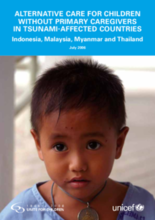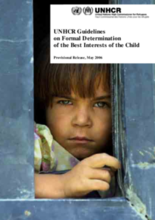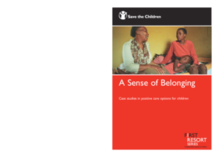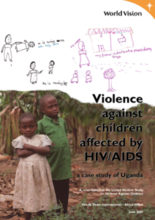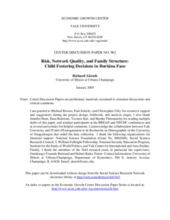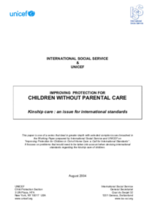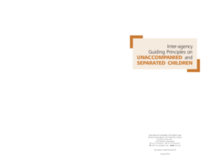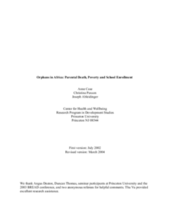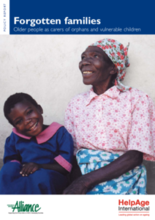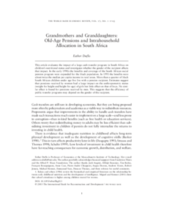Displaying 101 - 110 of 112
An assessment of alternative care responses for children without primary caregivers in tsunami-affected regions of Malaysia, Myanmar, Indonesia, and Thailand. Includes good practices, recommendations, and detailed country reports.
Guidelines for when and how to make a decision regarding the best interests of the child in the case of emergencies. Includes useful information for addressing unaccompanied and separated children including, temporary and alternative care arrangements, tracing and reunification, and child participation.
Save the Children's "First Resort" series focuses on the needs and rights of children who, for a wide variety of reasons, are lacking adequate parental care. This third paper in the First Resort series presents practical examples of the range of options available to policy-makers, practitioners and others with responsibilities for the care and protection of children without adequate parental care.
Report documenting participatory research conducted on violence against children affected by HIV/AIDS in Uganda. Particular focus on the stigmatisation and discrimination.
Analyzes household decisions to send and receive children via fostering. Results show fostering used as a social protection mechanism to cope with income shock (sending) and address family labor shortages (receiving).
A paper outlining the use of formal and informal kinship care, child headed households and cross border kinship care. It discusses the advantages and limitations of each, including welfare costs, and argues for international standard setting.
A comprehensive framework to ensure that the rights and needs of separated children are effectively addressed. Guidelines aim to promote and support preparedness, coordination and good practice based on lessons learned. Addresses all aspects of an emergency from preventing separations, to family tracing and reunification, through to long-term solutions.
Research on the incidence, living arrangements, and causes of lower school enrollment of orphans in Sub-Saharan Africa.
A publication by International AIDS Alliance and HelpAge International provides an overview of the issues identified by older people and orphans and vulnerable children themselves; examples of community-based programs that are improving the lives of older people and orphans and vulnerable children; recommendations that will help to prioritize orphans and their carers within HIV/AIDS and wider development policies, programs and research.
This research paper discussed the impact of the South African old-age pension program, or cash transfer, on the health of children living with an eligible recipient. It finds that both gender of the recipient and gender of the child living with the recipient are factors in health outcomes.

